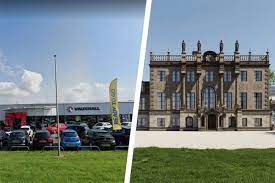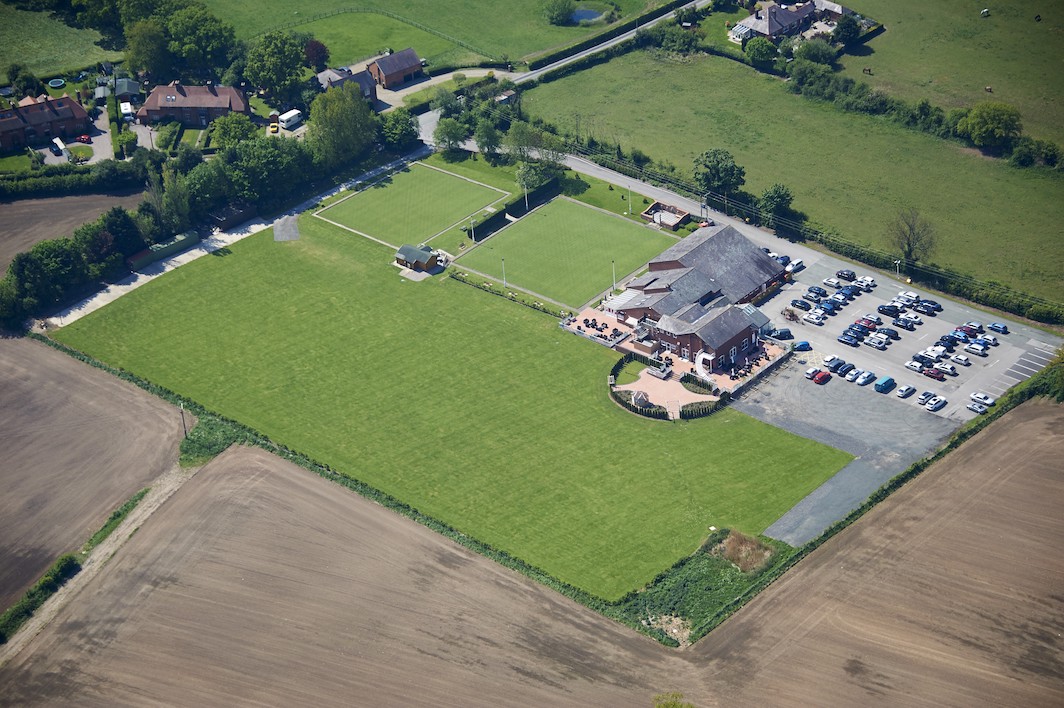Hooton Park lies on the outskirts of Ellesmere Port, Cheshire and was the site chosen by Vauxhall Motors in 1961 on which they would build their new production plant. Construction work began onsite in 1962.
In early 1963 Vauxhall’s began the process of interviewing candidates from all over the country for the hundreds of new jobs that would be created at the plant, and at the same time several existing employees from the plant in Luton were offered the opportunity to transfer to the new plant, due to their existing skills and knowledge, and start new lives in the area with their families.

Amongst these new arrivals were many men who were freemasons and the lodges in the area took the opportunity to invite those men to join them as visitors and enjoy the fellowship of likeminded brothers.
Several of the new employees at Vauxhall’s who were employed in both managerial and shop floor level roles, along with a few more good men from the local area, decided to form a new lodge that would meet in Whitby and be open to those unattached masons who had moved into the area as a result of the new production plant at Hooton Park, as well as others who were looking to join a new lodge.
And so it was that 16 founding brothers submitted a petition to the United Grand Lodge of England to found a new lodge in Whitby which would henceforth be known as the Hooton Park Lodge. Permission was duly granted and on Thursday 11th May 1967 the new lodge was consecrated and designated Hooton Park Lodge No.8156.
The Lodge Emblem
The Lodge took as its emblem a shield with three distinct emblems on it, the first was a sheaf of corn taken from the emblem of Cheshire, the second was a Heron a symbol of the ancient Heronry that existed in the Booston Woods of Hooton Hall, and lastly, the Wirral Horn.
In the year 1120 Randle De Meschines, Earl of Chester after becoming peeved at the constant robbing and pillaging by the conquered people of the Wirral appointed Alan Sylvester as the Chief Forrester of the forest of Wirral and in so doing, granted him the Manors of Hooton, Storeton and Puddington, on condition that he performed the duties of Forrester and upheld the peace in the area. His duties also included blowing or causing to be blown, a horn, at the Gloverstone in Chester on the morning of every fair day.

The horn was to indicate that the tolls on all goods bought and sold in the city or within the sound of the horn, belonged to the Earl or his tenants and it was further his duty to collect taxes from the people of the Wirral. This Sylvester and his gang of thugs duly did, raping and pillaging any who could not pay.
The horn was passed down through generations of the family until the Wirral was eventually disafforested by order of Edward III due to the complaints by the people of Chester about the number of highwaymen using the cover of the forest to rob them.
The Stanley family who then held the horn, petitioned the King for the loss of revenue and were granted an annual pension of 20 marks by way of compensation, which unfortunately, they rarely received!
Since then the horn has been passed from family to family and is now in the safe keeping of the Earl of Cromer

